Lindsey Olivares, the Annie Award-winning designer behindThe Mitchells vs. The Machines, brings energy and personality to everything she creates. Her bold, dynamic style shines in animation, portrait art, and beyond.
In this article, we’re excited to showcase Lindsey’s take on celebrity caricatures, turning famous faces into playful, vibrant illustrations. By emphasizing key features while keeping the heart of each subject, Lindsey offers a fresh, fun perspective on the stars we know so well.
More info:Instagram|lindseyolivares.com|x.com
This post may includeaffiliate links.
We reached out to Lindsey to learn more about her artistic journey, her passion for caricature art, and the creative process behind her unique character designs. When asked how she got her start as an artist, she said that making art has always been a big part of her life. “I grew up in a creative family where the arts were always celebrated. I studied animation at Ringling College of Art and Design, trained in character design during an internship at Walt Disney Animation Studios, and began my animation career as a visual development artist at DreamWorks Animation.“RELATED:Lindsey shared that her caricature style developed naturally while spending a lot of time drawing from real life. “The more I trained in draftsmanship and understood drawing fundamentals, the more freedom I had to break realism and stylize.“One of Lindsey’s early caricature influences was Craig Kellman, a character designer she worked with at DreamWorks. “Craig has an incredible sense of comedy in his work, and drawing caricatures of each other in the office gave me the confidence to be bolder with my own drawings. Later, I discovered the International Society of Caricature Artists (ISCA), where I found a network of deeply inspiring caricature artists. ISCA hosts an annual convention, ISCAcon, where hundreds of caricature artists from around the world gather for a week to draw each other. Every year I attend, I come away with a ton of inspiration from this amazing, diverse community of artists.“To Lindsey, caricature is less about exaggerating unusual features and more about capturing a person’s true likeness and personality. “People often misunderstand caricature as simply finding a ‘weird feature’ or ‘flaw’ and exaggerating it. This leads to the assumption that it’s harder to caricature a ‘normal’ or ‘boring’ face. I don’t like those words and don’t subscribe to the concept of beauty standards or physical flaws. Caricature, to me, is about capturing a person’s likeness and essence. When you observe people with genuine curiosity, everyone becomes interesting.The hardest part, I find, is distilling an entire person into a single image. If I know someone well, it’s even more challenging to feel satisfied—It’s an addicting challenge to capture all that life and personality in a single image.“Drawing live caricatures usually takes about 20 minutes, while studio caricatures—which involve more detail and adjustments—can take 1 to 3 hours.Lindsey begins every creative process with an impression. “It can be an attitude, a posture, structure, flow, shape, or proportion. My caricatures are the most successful when I capture a quick initial impression and run with it. From there it’s a game of balancing ideas, knowing how to edit, and knowing how to trick the brain. The human brain is incredible at recognizing faces, which gives a lot of freedom to push and play while maintaining recognition.“See Also on Bored PandaSee Also on Bored Panda
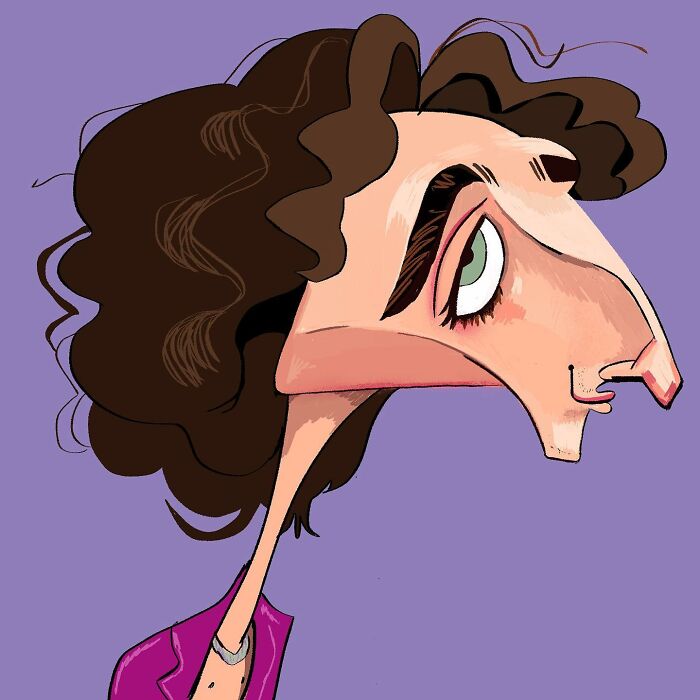
We reached out to Lindsey to learn more about her artistic journey, her passion for caricature art, and the creative process behind her unique character designs. When asked how she got her start as an artist, she said that making art has always been a big part of her life. “I grew up in a creative family where the arts were always celebrated. I studied animation at Ringling College of Art and Design, trained in character design during an internship at Walt Disney Animation Studios, and began my animation career as a visual development artist at DreamWorks Animation.”
RELATED:
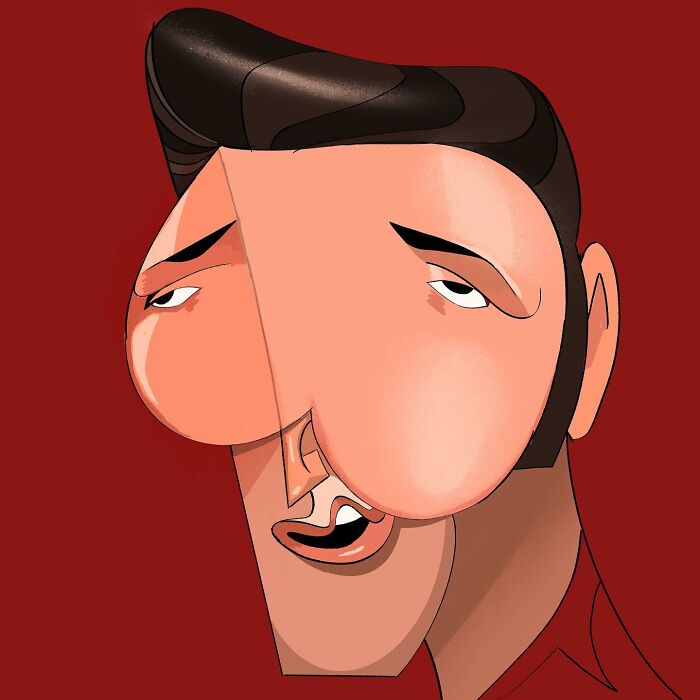
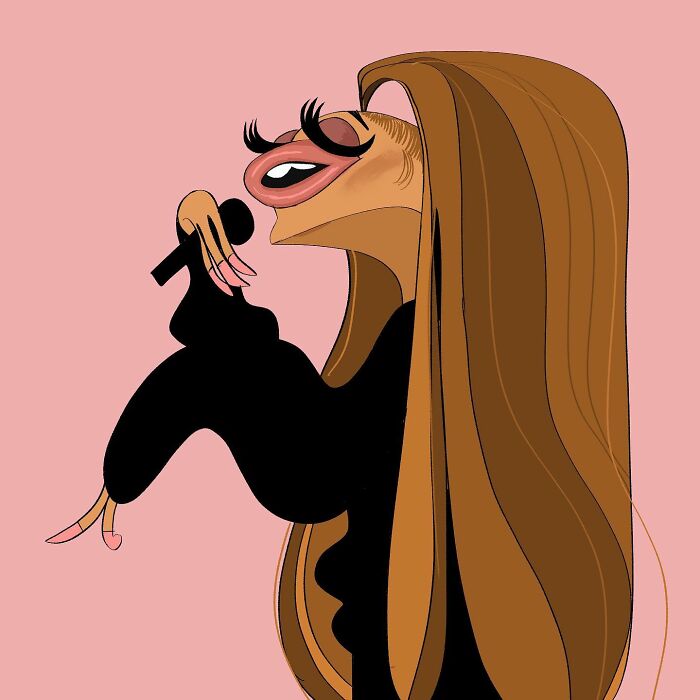
Lindsey shared that her caricature style developed naturally while spending a lot of time drawing from real life. “The more I trained in draftsmanship and understood drawing fundamentals, the more freedom I had to break realism and stylize.“One of Lindsey’s early caricature influences was Craig Kellman, a character designer she worked with at DreamWorks. “Craig has an incredible sense of comedy in his work, and drawing caricatures of each other in the office gave me the confidence to be bolder with my own drawings. Later, I discovered the International Society of Caricature Artists (ISCA), where I found a network of deeply inspiring caricature artists. ISCA hosts an annual convention, ISCAcon, where hundreds of caricature artists from around the world gather for a week to draw each other. Every year I attend, I come away with a ton of inspiration from this amazing, diverse community of artists.”
Lindsey shared that her caricature style developed naturally while spending a lot of time drawing from real life. “The more I trained in draftsmanship and understood drawing fundamentals, the more freedom I had to break realism and stylize.”
One of Lindsey’s early caricature influences was Craig Kellman, a character designer she worked with at DreamWorks. “Craig has an incredible sense of comedy in his work, and drawing caricatures of each other in the office gave me the confidence to be bolder with my own drawings. Later, I discovered the International Society of Caricature Artists (ISCA), where I found a network of deeply inspiring caricature artists. ISCA hosts an annual convention, ISCAcon, where hundreds of caricature artists from around the world gather for a week to draw each other. Every year I attend, I come away with a ton of inspiration from this amazing, diverse community of artists.”
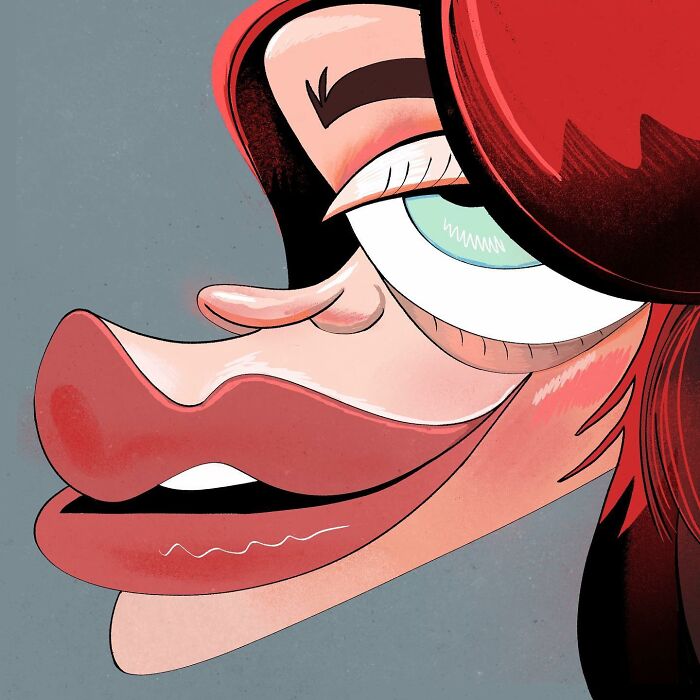
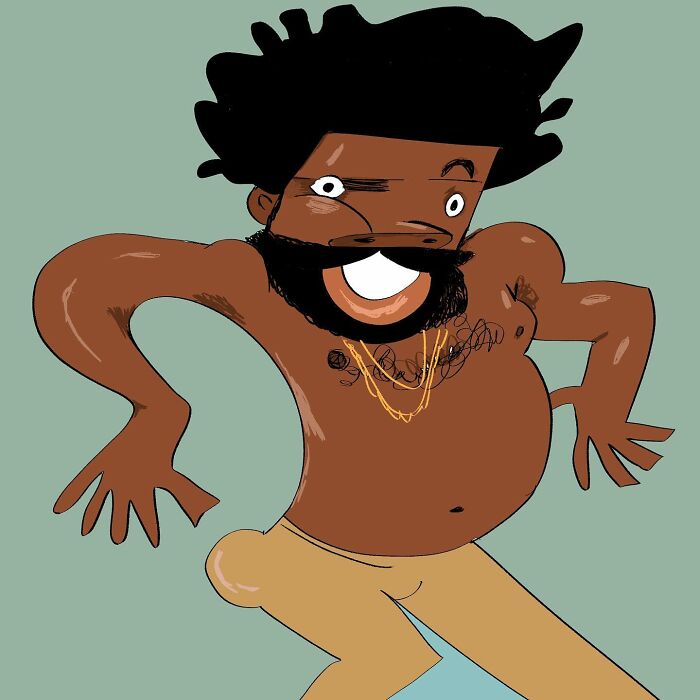
To Lindsey, caricature is less about exaggerating unusual features and more about capturing a person’s true likeness and personality. “People often misunderstand caricature as simply finding a ‘weird feature’ or ‘flaw’ and exaggerating it. This leads to the assumption that it’s harder to caricature a ‘normal’ or ‘boring’ face. I don’t like those words and don’t subscribe to the concept of beauty standards or physical flaws. Caricature, to me, is about capturing a person’s likeness and essence. When you observe people with genuine curiosity, everyone becomes interesting.The hardest part, I find, is distilling an entire person into a single image. If I know someone well, it’s even more challenging to feel satisfied—It’s an addicting challenge to capture all that life and personality in a single image.”
To Lindsey, caricature is less about exaggerating unusual features and more about capturing a person’s true likeness and personality. “People often misunderstand caricature as simply finding a ‘weird feature’ or ‘flaw’ and exaggerating it. This leads to the assumption that it’s harder to caricature a ‘normal’ or ‘boring’ face. I don’t like those words and don’t subscribe to the concept of beauty standards or physical flaws. Caricature, to me, is about capturing a person’s likeness and essence. When you observe people with genuine curiosity, everyone becomes interesting.
The hardest part, I find, is distilling an entire person into a single image. If I know someone well, it’s even more challenging to feel satisfied—It’s an addicting challenge to capture all that life and personality in a single image.”
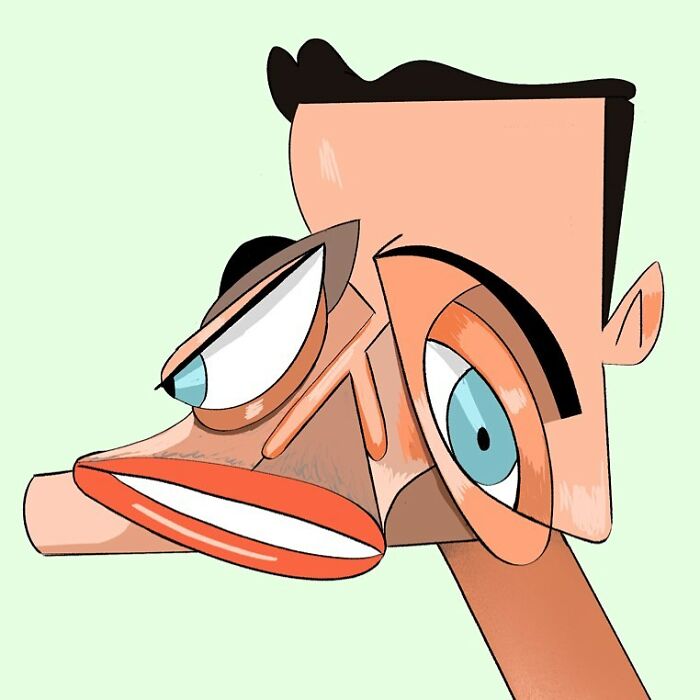
Drawing live caricatures usually takes about 20 minutes, while studio caricatures—which involve more detail and adjustments—can take 1 to 3 hours.Lindsey begins every creative process with an impression. “It can be an attitude, a posture, structure, flow, shape, or proportion. My caricatures are the most successful when I capture a quick initial impression and run with it. From there it’s a game of balancing ideas, knowing how to edit, and knowing how to trick the brain. The human brain is incredible at recognizing faces, which gives a lot of freedom to push and play while maintaining recognition.”
Drawing live caricatures usually takes about 20 minutes, while studio caricatures—which involve more detail and adjustments—can take 1 to 3 hours.
Lindsey begins every creative process with an impression. “It can be an attitude, a posture, structure, flow, shape, or proportion. My caricatures are the most successful when I capture a quick initial impression and run with it. From there it’s a game of balancing ideas, knowing how to edit, and knowing how to trick the brain. The human brain is incredible at recognizing faces, which gives a lot of freedom to push and play while maintaining recognition.”
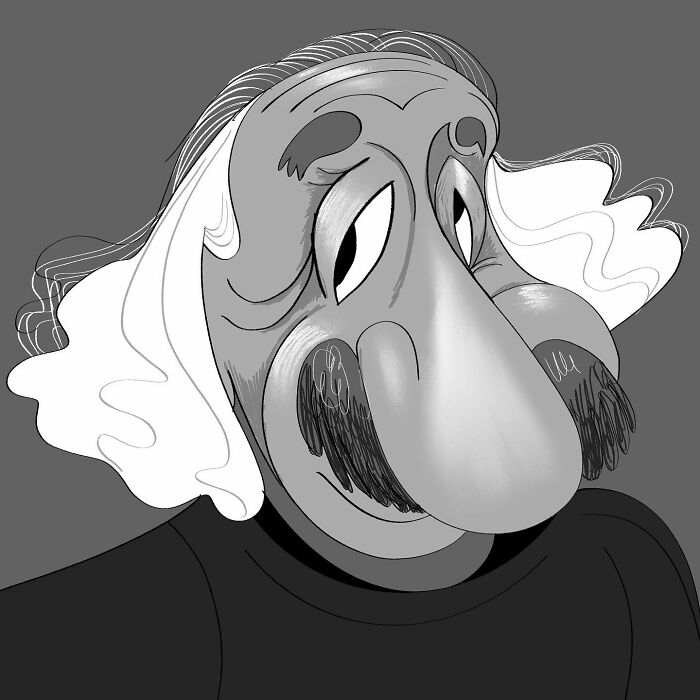
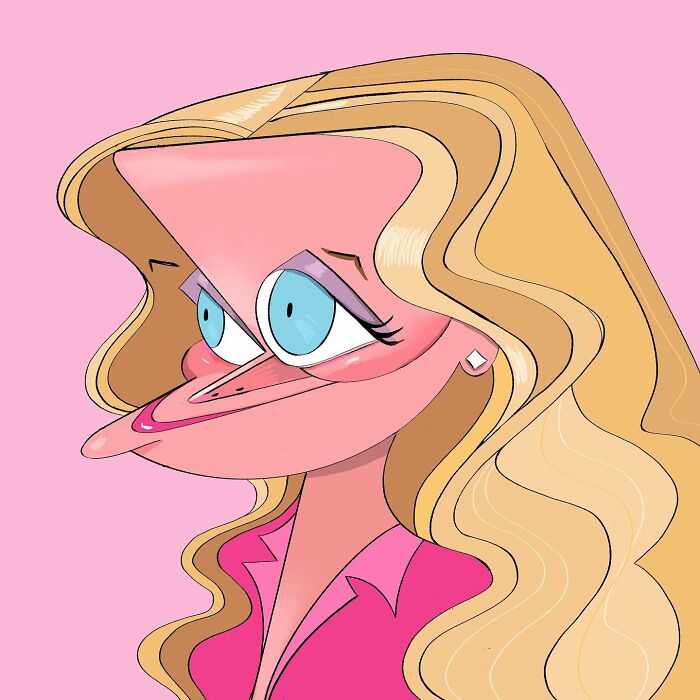
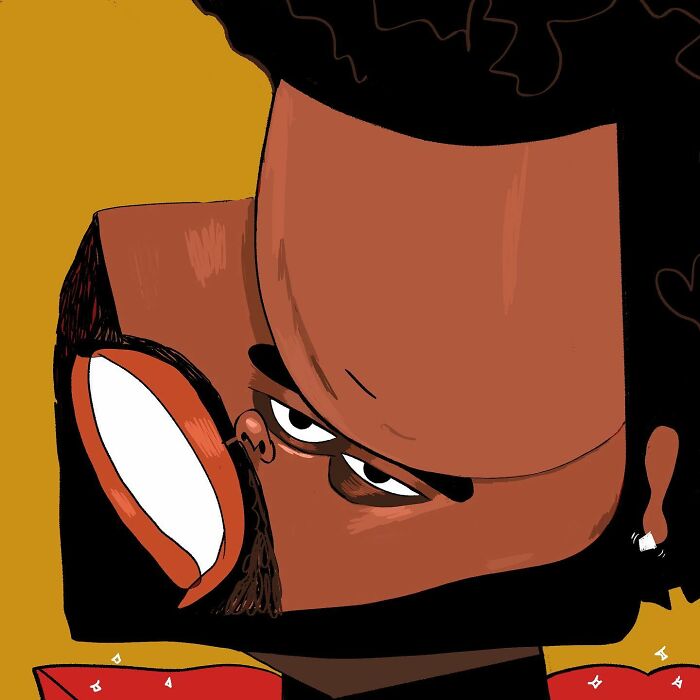
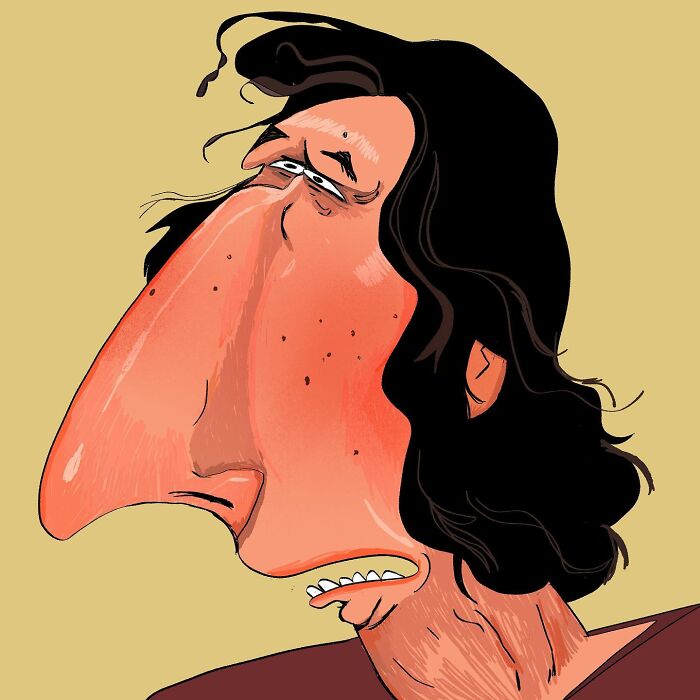
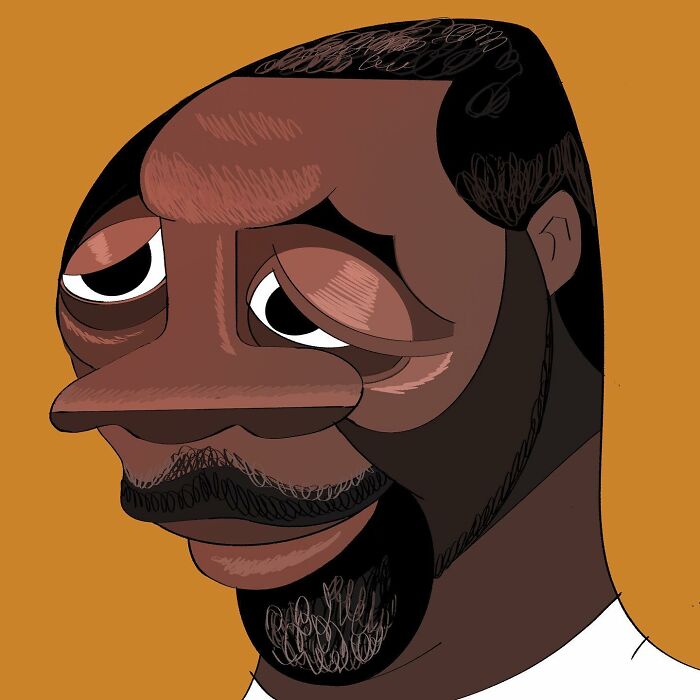
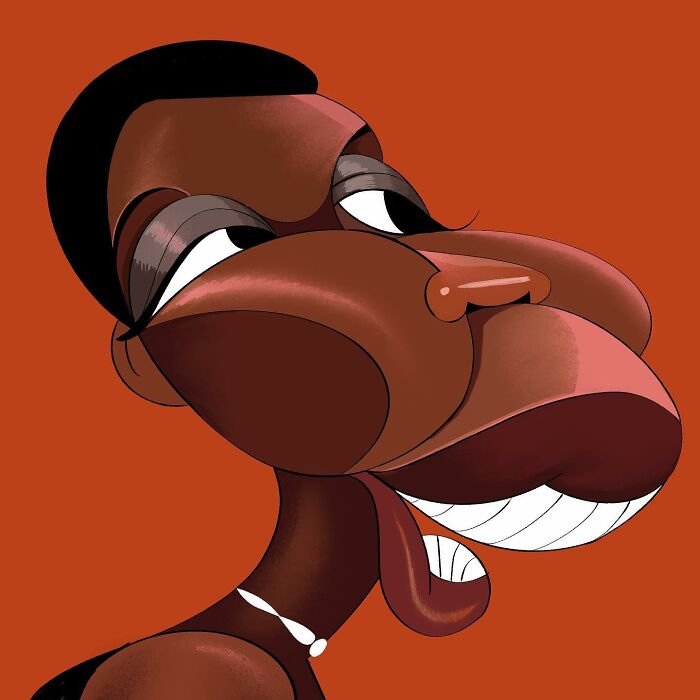
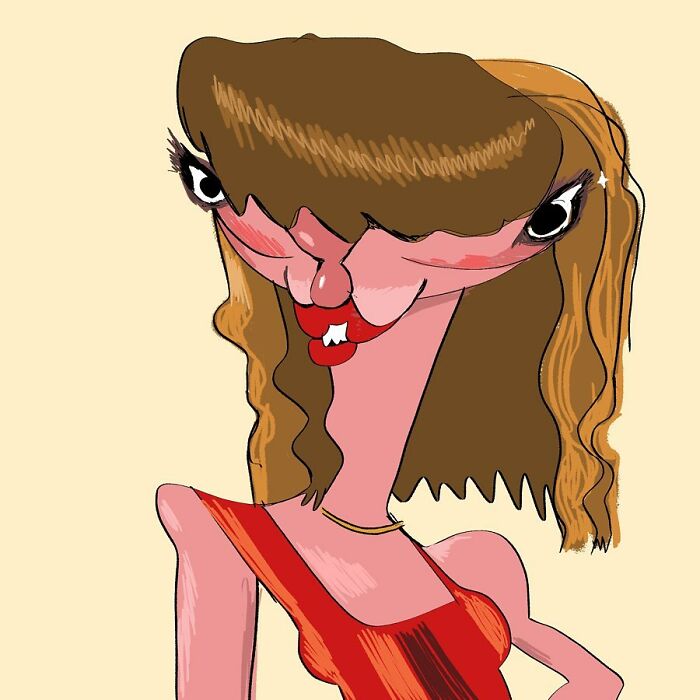
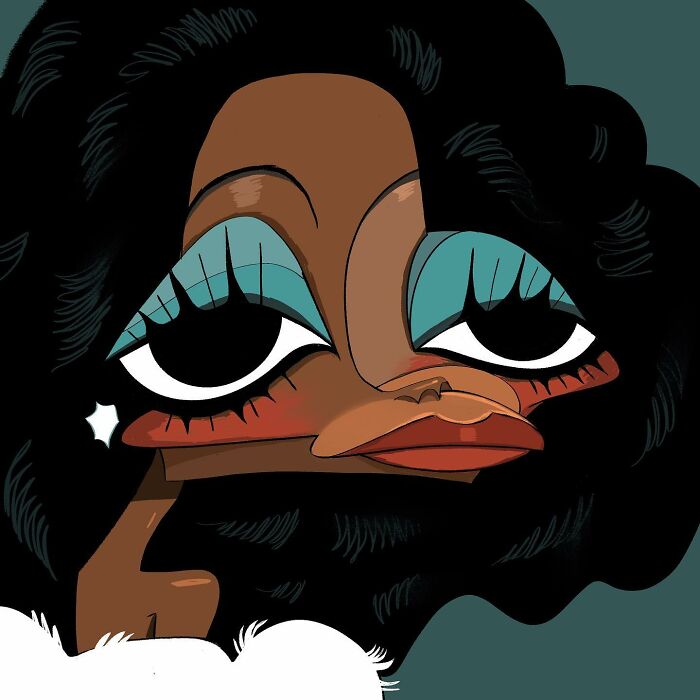
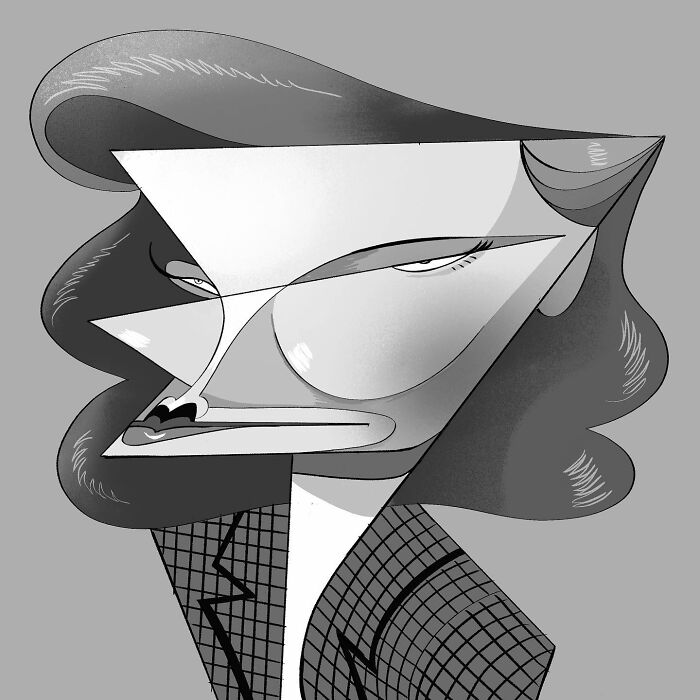
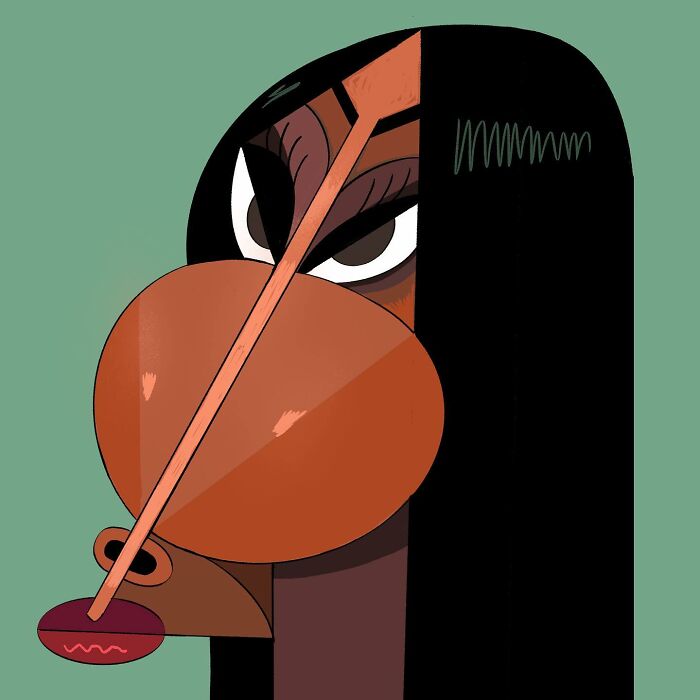
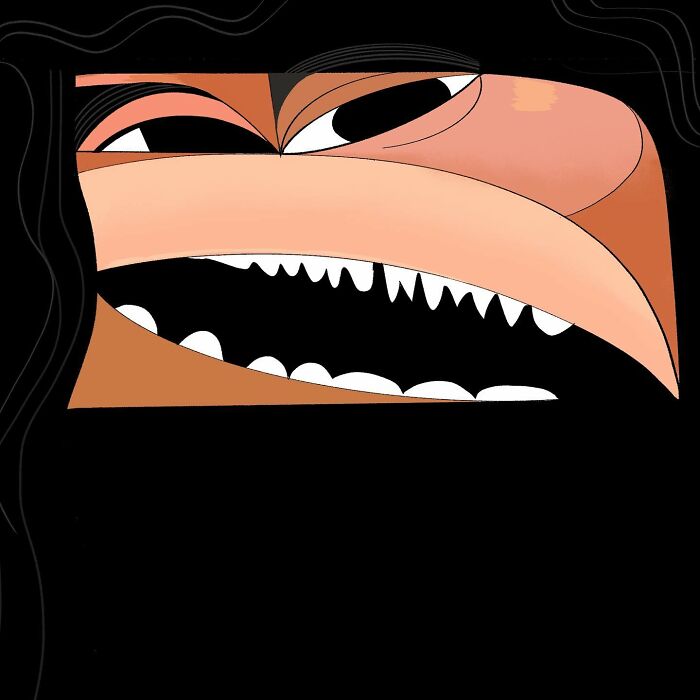
See Also on Bored Panda
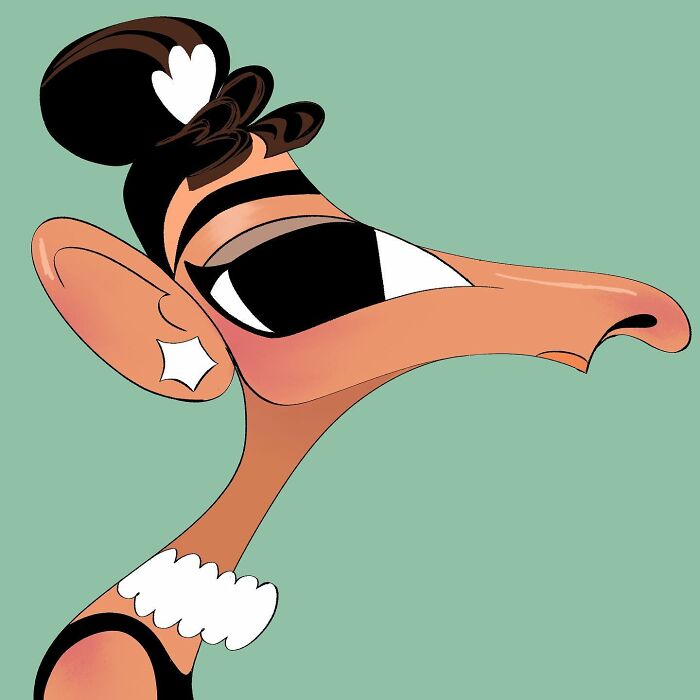
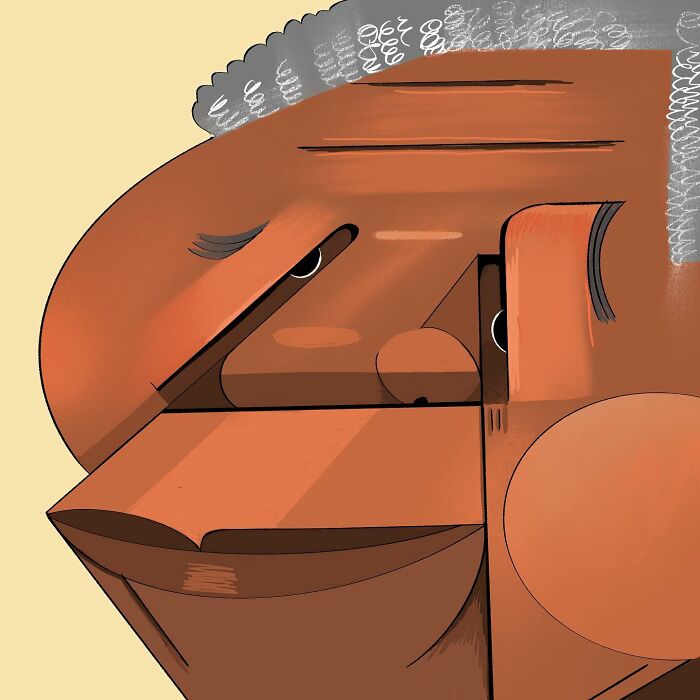
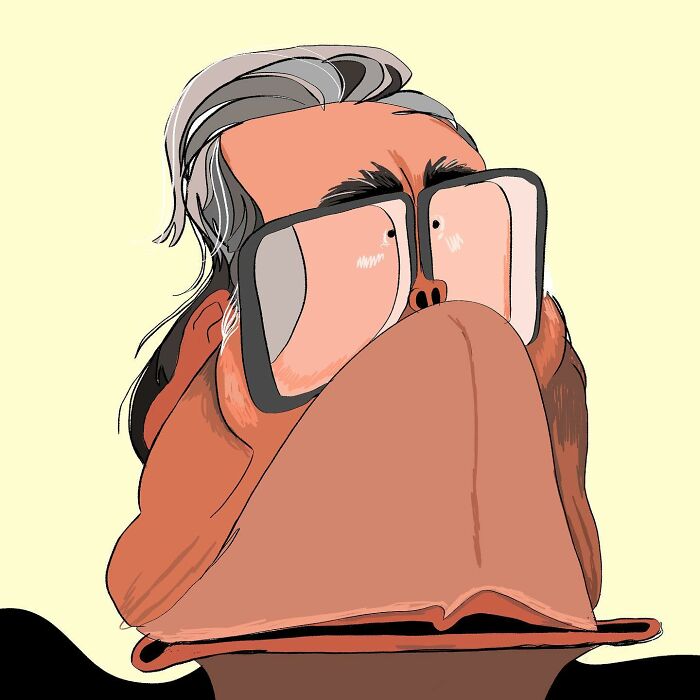
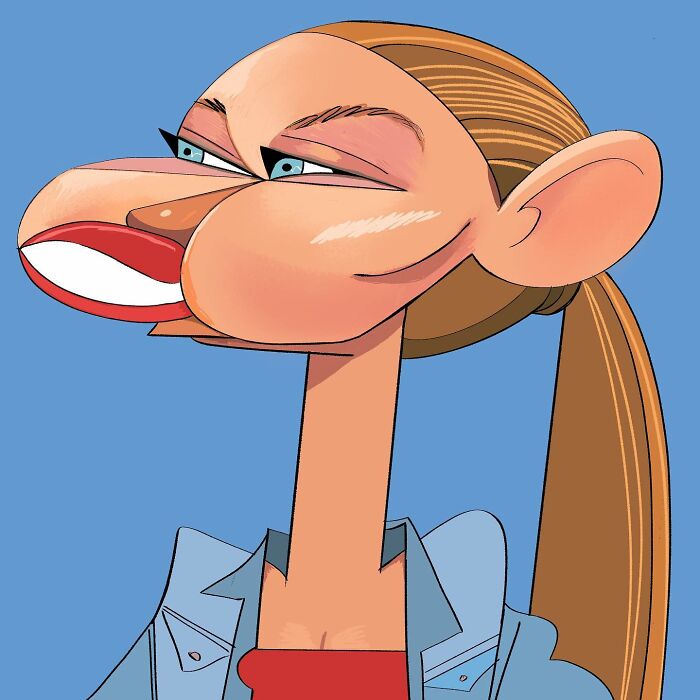
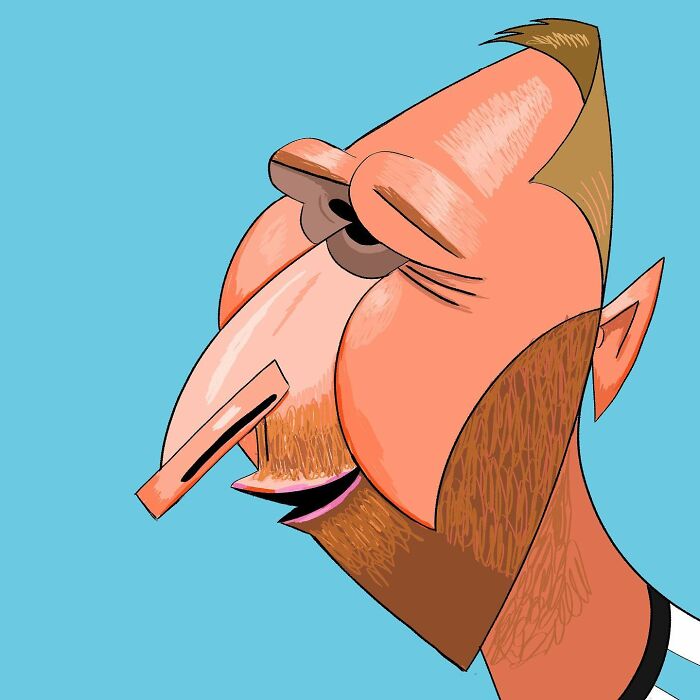
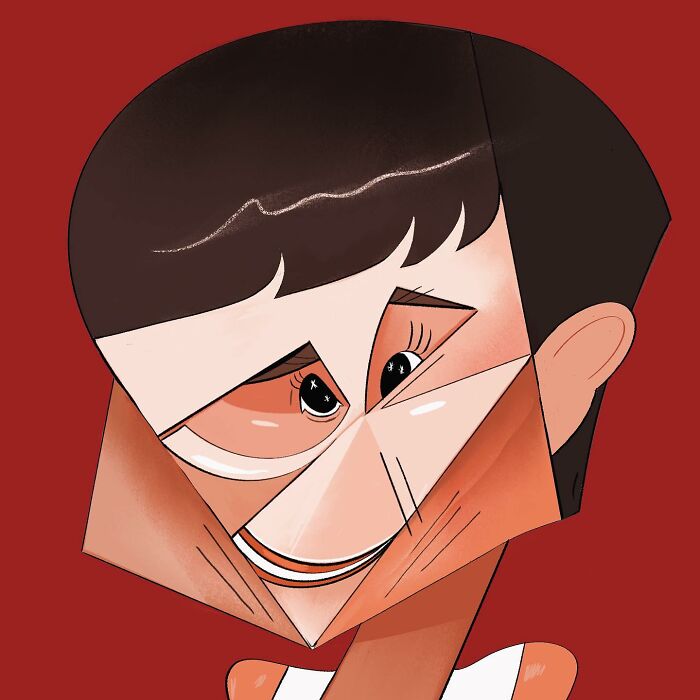
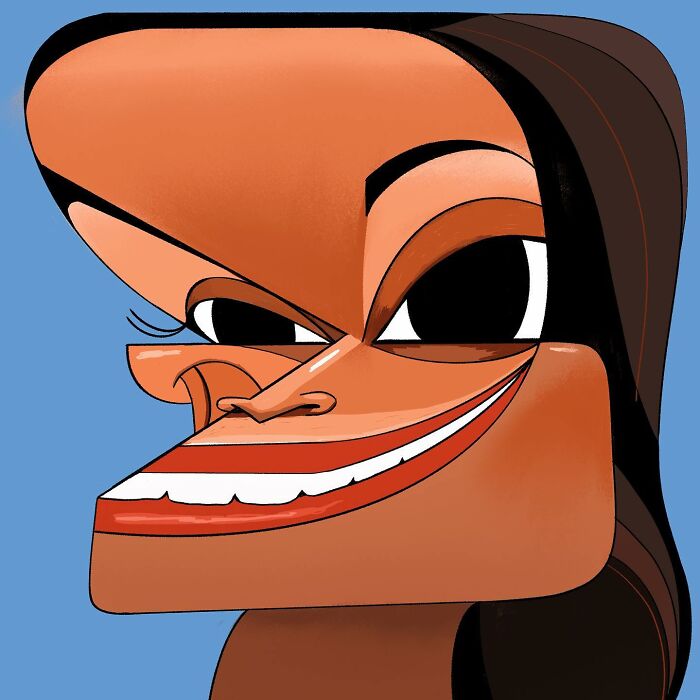
Modal closeAdd New ImageModal closeAdd Your Photo To This ListPlease use high-res photos without watermarksOoops! Your image is too large, maximum file size is 8 MB.Not your original work?Add sourcePublish
Modal close
Add New ImageModal closeAdd Your Photo To This ListPlease use high-res photos without watermarksOoops! Your image is too large, maximum file size is 8 MB.Not your original work?Add sourcePublish
Modal closeAdd Your Photo To This ListPlease use high-res photos without watermarksOoops! Your image is too large, maximum file size is 8 MB.Not your original work?Add sourcePublish
Add Your Photo To This ListPlease use high-res photos without watermarksOoops! Your image is too large, maximum file size is 8 MB.
Add Your Photo To This List
Please use high-res photos without watermarks
Ooops! Your image is too large, maximum file size is 8 MB.
Not your original work?Add source
Modal closeModal closeOoops! Your image is too large, maximum file size is 8 MB.UploadUploadError occurred when generating embed. Please check link and try again.TwitterRender conversationUse html versionGenerate not embedded versionAdd watermarkInstagramShow Image OnlyHide CaptionCropAdd watermarkFacebookShow Image OnlyAdd watermarkChangeSourceTitleUpdateAdd Image
Modal closeOoops! Your image is too large, maximum file size is 8 MB.UploadUploadError occurred when generating embed. Please check link and try again.TwitterRender conversationUse html versionGenerate not embedded versionAdd watermarkInstagramShow Image OnlyHide CaptionCropAdd watermarkFacebookShow Image OnlyAdd watermarkChangeSourceTitleUpdateAdd Image
Upload
UploadError occurred when generating embed. Please check link and try again.TwitterRender conversationUse html versionGenerate not embedded versionAdd watermarkInstagramShow Image OnlyHide CaptionCropAdd watermarkFacebookShow Image OnlyAdd watermark
Error occurred when generating embed. Please check link and try again.
TwitterRender conversationUse html versionGenerate not embedded versionAdd watermark
InstagramShow Image OnlyHide CaptionCropAdd watermark
FacebookShow Image OnlyAdd watermark
ChangeSourceTitle
You May Like50 AI Art Fails That Are Both Horrifying And HilariousEglė Bliabaitė136 Artists Reveal the Dark Reality of Depression Through DrawingsVaiva Vareikaite50 Famous Portraitists Whose Artworks Are Recognized All Around The GlobeEligijus Sinkunas
Eglė Bliabaitė
Vaiva Vareikaite
Eligijus Sinkunas
Art